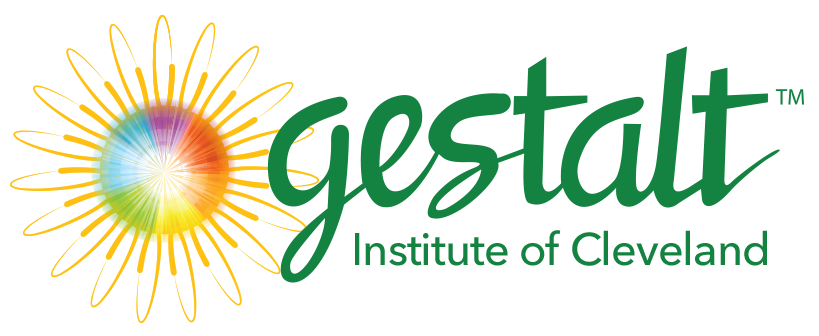
WHAT IS GESTALT?
Discover how training in Gestalt theory and methods can lead to personal and professional growth for many.
“Gestalt reaches the parts of the brain that traditional education overlooks: the brain’s function core that is essential for resilience, motivation, well-being and consciousness. If you will let it, Gestalt has the power to transform your brain and your life.”
Gestalt is a holistic approach to understanding human experience and fostering growth, focusing on the interconnectedness of an individual's thoughts, feelings, behaviors, and environment. The Gestalt approach emphasizes the importance of the present moment, self-awareness, and taking responsibility for one's choices, dialogue, and action. By exploring the complex interplay between an individual’s experience and their context, Gestalt offers a powerful framework for personal growth, healing, and transformation.
What is Gestalt?
Gestalt Meaning:
Gestalt is a German word that roughly means "configuration." Something that is made of many parts and yet is somehow more than or different from the combination of its parts
The origins of Gestalt can be traced back to the early 20th century, with the work of Gestalt Psychologists Max Wertheimer, Wolfgang Köhler, and Kurt Koffka, who developed Gestalt psychology. However, it was Fritz Perls, along with his wife Laura Perls and collaborator Paul Goodman, who later adapted these principles to create Gestalt therapy in the 1940s. The Gestalt Institute of Cleveland (GIC), was founded in 1954 by some of the earliest students of Fritz and Laura Perls(who also taught at GIC in those early years). GIC expanded the application of Gestalt principles to various fields, including group process, couples and family therapy, coaching, leadership development, and organizational consulting.
Origins of Gestalt
Get Introduced to Gestalt with a GIC Course
Interested in learning more about how Gestalt can help you?
Consider joining one of our introductory or info sessions to learn more:
Learn all about our Gestalt Experience Workshop (GEW) or Introduction to Gestalt workshops
Check our Calendar for new dates or join a waitlist
Gestalt is a powerful and versatile approach that offers significant benefits to individuals and professionals across various fields. By emphasizing self-awareness, personal responsibility, and the interconnectedness of individuals and their environment, Gestalt provides a transformative framework for personal growth, healing, and organizational development.
Applying Gestalt To Help Solve Real-World Challenges
For individuals seeking personal growth, Gestalt offers a path toward greater self-awareness, authenticity, and emotional intelligence. By learning to embrace the present moment and take responsibility for their thoughts, feelings, and actions, individuals can break free from limiting patterns and lead more fulfilling lives. Gestalt explorations in clinical settings, such as dream work and exploration of polarities provide powerful tools for self-exploration and conflict resolution.
Therapists and counselors can benefit from integrating Gestalt principles into their practice, as it offers a dynamic and experiential approach to working with clients. By focusing on the client's present experience and the therapeutic relationship, Gestalt therapy helps clients develop a deeper understanding of themselves and their relationships, leading to lasting change and personal growth.
Coaches can also leverage Gestalt principles to help their clients achieve their goals and unlock their full potential. By fostering self-awareness, encouraging experimentation, and supporting clients in taking responsibility for their choices, Gestalt-oriented coaching can facilitate transformative learning and growth.
Gestalt offers a framework for understanding group dynamics, improving communication, and fostering a culture of authenticity and collaboration. By modeling self-awareness, empathy, and responsibility, Gestalt-trained leaders can create an environment where individuals feel valued, heard, and motivated to contribute their best.
Organizational development professionals and HR specialists can apply Gestalt principles and practices to increase engagement, enhance individual and team effectiveness, foster adaptability and agility, and promote a healthy organizational culture. By focusing on the interplay between individuals, groups, and the larger organizational system, Gestalt-informed interventions can help align individual and organizational goals, leading to improved performance and employee well-being.
Frequently Asked Questions
-
Gestalt therapy is a humanistic and experiential form of psychotherapy developed by Fritz Perls, Laura Perls, and Paul Goodman in the 1940s and 1950s and elaborated and extended by Ed and Sonia Nevis, Miriam and Irving Pollster and others at the Gestalt Institute of Cleveland. The key principles of Gestalt therapy include:
Here and Now: Emphasis on present moment awareness and experience rather than dwelling on past events or future anxieties.
Holism: Viewing the person as a whole, integrating mind, body, emotions, and spirit, rather than as separate parts.
Phenomenology: Focusing on the client's subjective experience and perception of reality.
Field Theory: Recognizing that individuals exist in an environmental context that influences their behavior and experiences.
Self-Regulation: Believing in the individual's innate ability to achieve balance and growth when fully aware of their needs and experiences.
Contact: Emphasizing the importance of authentic contact between the therapist and client, as well as the client's contact with their environment.
Responsibility: Encouraging clients to take responsibility for their choices, actions, and experiences.
Unfinished Business: Addressing incomplete experiences or unresolved conflicts that may be affecting present functioning.
Polarities: Exploring and integrating opposing aspects of the self to achieve balance.
Experiments: Using experiential techniques and exercises to increase awareness and promote change.
Dialogue: Promoting open, honest communication between therapist and client.
Creative Adjustment: Recognizing that symptoms or problematic behaviors may have been adaptive at one point and exploring new ways of meeting needs.
Gestalt therapy aims to increase self-awareness, promote personal growth, and help individuals take responsibility for their lives. The therapist typically uses active techniques to help clients experience their feelings and behaviors in the present moment, rather than just talking about them.
-
Evolving for over 30 years, the Gestalt Coaching approach is holistic, relational and emergent in the here and now; raising awareness of the physical, emotional, cognitive and relational processes appropriate to each individual client’s situation, context and dilemmas being explored. GIC graduating coaches develop confidence that only comes from learning steeped in human psychology and evidence-based science.
-
Gestalt Organizational Development (OD) is an approach to organizational change and development that applies principles from Gestalt therapy to organizational settings. Key aspects include:
1. Holistic perspective:
Gestalt OD views organizations as whole systems, emphasizing that the whole is greater than the sum of its parts. It considers how different elements of an organization interact and influence each other.
2. Focus on awareness:
Gestalt OD emphasizes increasing awareness at individual, group, and organizational levels. This includes awareness of sensations, feelings and thoughts, interpersonal dynamics, and the organization's relationship with its environment.
3. Here-and-now orientation:
Gestalt OD prioritizes addressing current issues and experiences rather than dwelling on past events or future hypotheticals. It encourages organizations to deal with immediate realities.
4. Experiential learning:
This approach favors experiential techniques over purely cognitive or analytical methods. It might involve role-playing, simulations, or other interactive exercises to promote learning and change.
5. Contact and boundaries:
Gestalt OD pays attention to how individuals and groups within an organization interact with each other and their environment, focusing on the quality of these interactions or "contacts."
6. Resistance as energy:
Rather than viewing resistance to change negatively, Gestalt OD sees it as source of insight that can be applied constructively if understood and appreciated.
7. Self-regulation and self-organization:
Gestalt OD believes in the capacity of individuals and systems to self-regulate and find their own solutions when given the right conditions and support.
8. Cycle of experience:
This concept from Gestalt therapy is applied to understand how organizations move through cycles of awareness, energy mobilization, action, and closure.
9. Use of the self:
Gestalt OD practitioners are trained to use their own experiences and reactions as diagnostic tools in understanding organizational dynamics.
10. Paradoxical theory of change:
This principle suggests that change occurs when one becomes fully aware of what one is, rather than trying to become what one is not.
Gestalt OD interventions might include team-building workshops, leadership development programs, conflict resolution processes, or organization-wide change initiatives, all designed with these principles in mind.
We respect your privacy.
